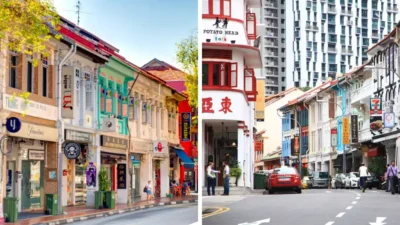Vietnam’s 4th wave of Covid-19 takes a toll on the real estate market
Despite the decline, analysts predict an increase in secondary market transactions in the coming months

In Vietnam, the recent resurgence of Covid-19 has affected the real estate market substantially, with demand for property searches and transactions dropping in most markets, reported Batdongsan.com.vn, citing data from the April 2021 market update.
In the North, where the pandemic flared up, Hai Phong and Bac Ninh provinces logged 36 percent and 29 percent fewer searches on Batdongsan.com.vn, respectively. In the central region, particularly in Da Nang, the land searches online plunged by 21 percent. As for the property hotspots in the South, Long An recorded a 12 percent decrease, whilst Binh Duong tallied a 7 percent slump in property searches.
The April 2021 Market Report also indicated a massive descent in interest level in terms of sale and rental markets in Hanoi and Ho Chi Minh cities compared to March 2021. The online searches for properties for sale stumbled by 22 percent in Hanoi and 16 percent in Ho Chi Minh.
Moreover, the search demand for the entire market dipped by 18 percent in April as opposed to a month before, with the land segment accounting for the most decline at 20 percent.
The report noted that the downturn most likely occurred as the investors lost their interest amid the new wave of outbreak. Nonetheless, property searches did go through a swift 44 percent year-on-year growth in contrast to the same period in 2020.
Nguyen Ngoc Hieu, the head of market research department at Batdongsan.com.vn, clarified that this April trend, where consumers dropped their interest in home searching, “was nothing out of the ordinary.”
More: 6 of the extraordinary places to see and experience in Phu Yen, Vietnam
Aside from the evident impact of the pandemic, the interest in real estate did peak in March because of land fever. However, the government introduced cooling measures mid-April, which prompted the decline in land fever and compelled the investors to leave the market.
In the next few months, Hieu predicts that real estate trading “might be less exciting” seeing as most projects have discontinued concentrated sales and resorted to digital alternatives to abide by the safety protocols in the midst of the outbreak. He also believes that the industry will delay the launch of new products until the country has managed to get the pandemic in order.
Despite these changes, he believes the secondary market transactions will be more active in the coming months, which could easily benefit businesses that are able to adapt and seamlessly move their operations online.
Recommended
Meet the Bitkub CEO turning real estate on its head with cryptocurrency and tokenised ownership
Jirayut “Topp” Srupsrisopa, CEO of Thai crypto exchange Bitkub, is a true believer in the potential of digitised finance
6 sights to spot in Jardine’s Lookout, Hong Kong
With its sumptuous harbour vistas, this low-density area is one of the most sought-after in Hong Kong
Meet the architect rethinking disability in urban spaces and how cities can be reimagined
Author David Gissen outlines his vision for urban development that takes the needs of disabled citizens into consideration
Why Asia’s mixed-use developments are the future of real estate
Dynamic integrated communities are fusing real estate with commercial, leisure, and other amenities








